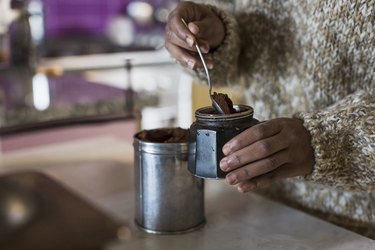People have strangely strong opinions about refrigeration. Some grew up in cold peanut butter houses and learned to keep ketchup and condiments on the countertop or hot sauce in cold temperatures. Others swear that peanut butter should only be kept at room temperature and that nothing edible belongs in the fridge. The food storage debates will rage on. In the meantime, clear up some space in your own fridge by pulling out some things that don't need to be there (but where you keep your peanut butter is still your call).
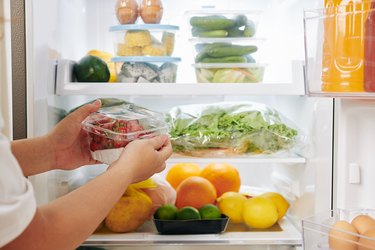
Video of the Day
1. Tomatoes
The best tomatoes still taste a little like the sunshine that grew them, so it's no wonder that the harsh cold of your fridge isn't the ideal environment for uncut tomatoes. They're delicate and tend to lose flavor and become mushy when they're refrigerated. Once they're cut, keep tomatoes in the fridge but use them as quickly as possible and let them warm to room temperature first.
Video of the Day

2. Honey
Honey might be the most low-maintenance item in your kitchen. It's been called the only food that lasts forever. Archaeologists have found pots of honey dating back thousands of years, and the contents are still edible. Keep it in a sealed jar at room temperature in a cool, dark and dry place.

3. Apples
Putting apples in the fridge will extend how long they keep, but it will diminish their flavor and texture. Apples tend to lose some of their crunch after being chilled. For best flavor, keep freshly picked whole apples at room temperature for up to a week or more. Only resort to refrigeration if you have more apples than you'll be able to use in a week.
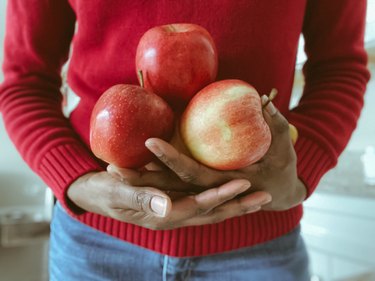
4. Potatoes
Potatoes are probably one of the most common veggies that people mistakenly assume should be refrigerated. In fact, the ideal environment for white and sweet potatoes is a cool place but not one that is too cold. Keep them in a pantry or drawer rather than on the countertop.
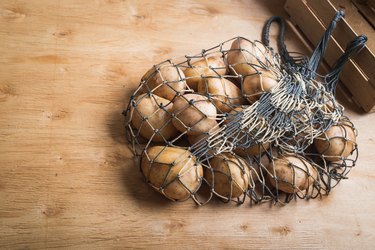
5. Melons
This is good news if your fridge is always overstuffed: There's no need to clear out fridge space for the giant watermelon you just bought on impulse. Keep melons on the counter until they're ripe and ready to eat. Once you've cut the melon in half or into pieces, then it can go into the fridge in an airtight container.
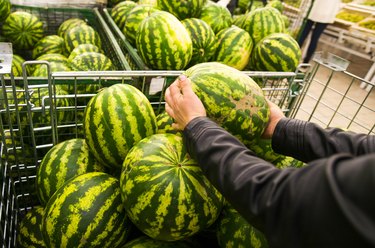
6. Onions
Onions are hardy enough to last for a month or longer without refrigeration. Like a potato, an onion's starch will turn to sugar in the fridge and affect its flavor and how it cooks. Like potatoes, onions should be stored in a cool, dark place like a pantry. (Delicate green onions should still be refrigerated.)
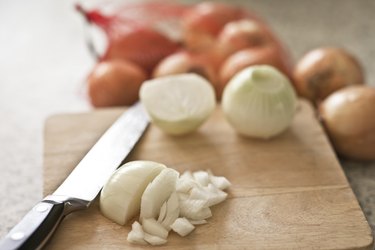
7. Bread
Some people assume that refrigerating bread will keep mold from growing and extend the life of the loaf. In fact, refrigerating bread may cause it to become stale quicker than it would at room temperature. Store excess bread in the freezer if necessary but keep this week's bread in a sealed plastic bag on the counter or in a bread box.
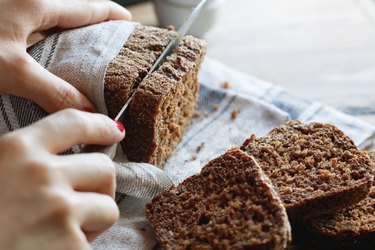
8. Squash
Certain kinds of thin-skinned squash, like zucchini, do belong in the fridge. Thick-skinned varieties, like butternut squash, may actually last longer if they're kept out of the refrigerator. Store them in a pantry until you cut into them and then refrigerate any pieces.
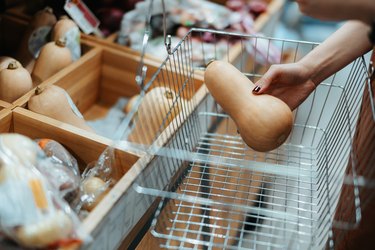
9. Avocados
Avocados are famously finicky. If you miss the ideal window, they'll turn brown and mushy. Refrigeration complicates the timeline and slows down ripening. Store them at room temperature until they feel perfectly ripe. Only refrigerate avocados if you're trying to delay using them or if you have a leftover half that you're saving for later.
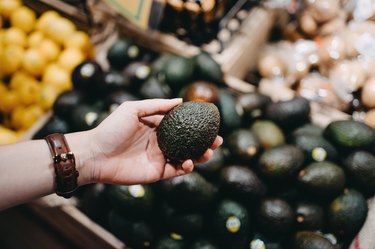
10. Coffee
While technically not a food, coffee might be the most important part of your daily diet, so those beans need to be delicious. They won't be delicious if they're stored in the fridge, where they'll absorb the odors of all the foods around them. Keep whole or ground coffee beans at room temperature in a sealed container stored someplace cool and dark.
